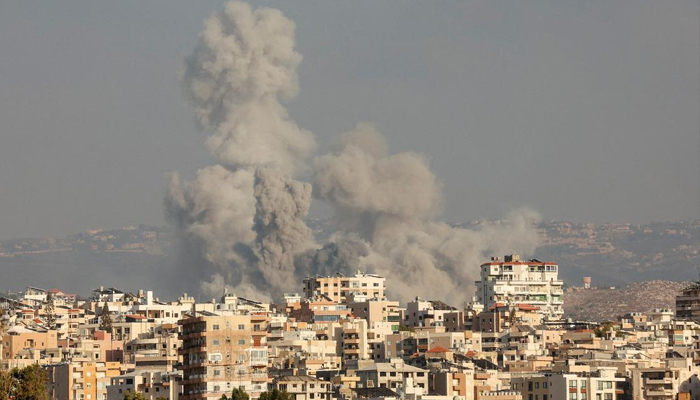
By Sahil Sharma: As we examine the ongoing conflict that has profoundly shaped the Middle East for decades, particularly the volatile cycle of violence between Israel and its neighbors, with Lebanon frequently caught in the crossfire. The roots of this complex conflict trace back to 1978, when Israeli troops invaded Lebanon in response to attacks by the Palestine Liberation Organization (PLO), then based there. This military intervention displaced the PLO and hundreds of thousands of civilians, igniting a cycle of suffering that continues to this day.
In the wake of this incursion, the United Nations established a peacekeeping force, UNIFIL, tasked with monitoring the border. However, critics have long highlighted its limited effectiveness in mitigating the ongoing violence. The situation escalated in 1982, when Israel launched a second invasion, compelling the Lebanese government to expel the PLO, which subsequently sought refuge in Tunisia.
This tumultuous period also witnessed the tragic Sabra and Shatila massacre, where Palestinian civilians were killed by Lebanese militias, leading to an Israeli inquiry that found then-defense minister Ariel Sharon indirectly responsible.
Amidst the destruction of southern Lebanon, Hezbollah emerged as a key player, formed with the primary goal of resisting Israeli occupation. Despite the assassination of its first leader, Abbas al-Musawi, in 1992, the group flourished under Hassan Nasrallah, gaining support from Iran and Syria. Hezbollah capitalized on the weakened Lebanese government, becoming a dominant force within the country.
By 2000, Israel withdrew from southern Lebanon after nearly two decades of occupation, a move that Hezbollah celebrated as a victory. However, peace remained elusive. In 2006, tensions erupted into a full-blown war when Hezbollah launched an incursion into Israeli territory, resulting in over 1,000 Lebanese civilian deaths. Despite the disparity in military power, Hezbollah emerged politically stronger, further entrenching its influence in Lebanese politics.
Today, the region teeters on the brink of a broader conflict. Israeli military actions in Lebanon have intensified, particularly as Israel gears up for potential strikes against Iran.
Israeli airstrikes have targeted central Beirut, leading to civilian casualties and extensive damage. Hezbollah is engaged in fierce combat with Israeli forces, while missile strikes from both Hezbollah and Iran-backed Houthi forces are now targeting Israel.
Prime Minister Benjamin Netanyahu has indicated preparations for further escalation, asserting, “We are at the height of a difficult war against Iran’s axis of evil. But we will stand together and with God’s help, we will win.” In response, Iran has launched missile strikes on Israeli air bases and is reportedly purging elements within its security forces to prevent possible Israeli infiltration.
As tensions mount, the tragic history of conflict in the region resonates. The words of Lebanese poet Kahlil Gibran echo amidst the turmoil: “Pity the nation that raises not its voice, save when it walks in a funeral.” The cycle of war persists, leaving civilians once again to bear the brunt of the violence.
